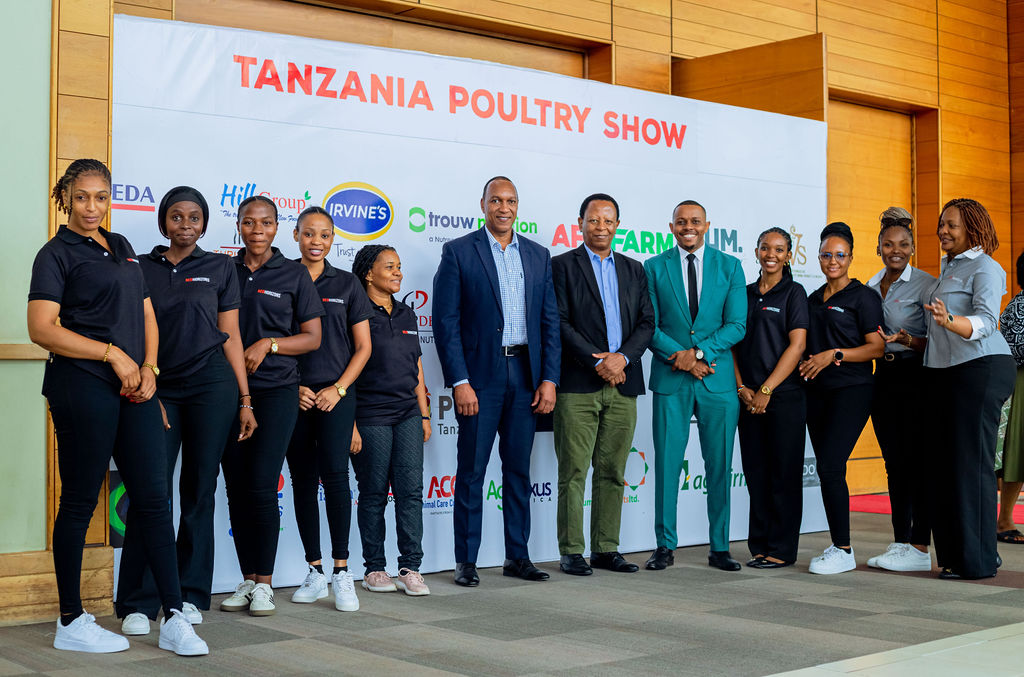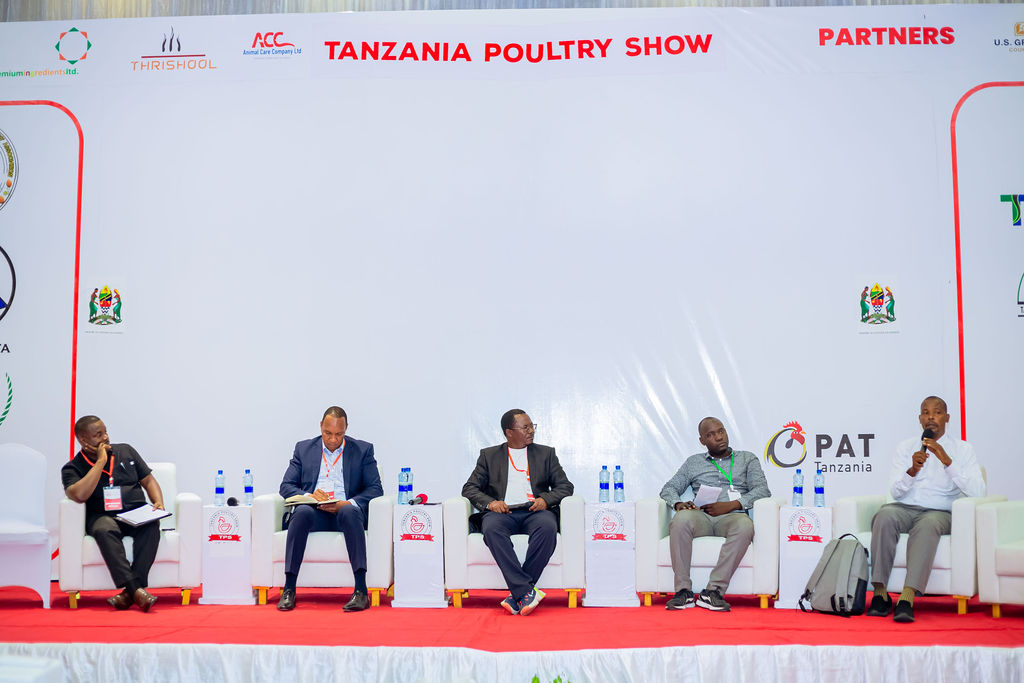Dar es Salam
The Tanzania Poultry Show 2024, hosted at Mlimani City from October 18-19, gathered diverse stakeholders from the agriculture and commerce sectors. The rapidly expanding event displayed the newest innovations and strategies shaping the poultry industry. Geoffrey Kirenga, CEO of SAGCOT Centre a, emphasized cooperation between private enterprises, government agencies, and smallholder farmers to drive agricultural productivity.
Geoffrey Kirenga at the AfriFarm Pavilion
At the AfriFarm Pavilion, Kirenga shared insights into the critical role companies like AfriFarm play in modernizing agriculture and livestock practices. AfriFarm, a rising agricultural and livestock sector star, has been making significant strides by offering crucial products and services. Kirenga expressed his satisfaction with the quality of products AfriFarm provides, ranging from disinfectants to vaccines, which are essential in maintaining biosecurity in poultry farming.
“AfriFarm is offering a range of products greatly needed by livestock farmers in Tanzania. For example, their disinfectants help maintain cleanliness and prevent disease outbreaks in poultry farms. They also provide vaccines that play a key role in reducing infections in our poultry population,” said Kirenga.
He also noted that AfriFarm supplies various farm equipment such as boots and other tools that reduce manual labor and increase efficiency on farms. Kirenga emphasized that such companies are crucial in meeting the growing demands of the Tanzanian agriculture sector. “This is a great opportunity for local manufacturers to step up and produce high-quality equipment domestically instead of relying on imports,” he added.
Focusing on Soybean Production
Beyond poultry, Kirenga shifted attention to the broader agricultural sector, specifically focusing on the production of soybeans. Tanzania produces approximately 20,000 tons of soybeans annually, while the domestic demand stands between 250,000 and 300,000 tons. This stark disparity highlights the urgent need for increased production.
“Our major focus in the agricultural sector right now, besides encouraging investors, is on increasing soybean production. We aim to increase production from 20,000 to 50,000 tons next year, with a longer-term goal of reaching 100,000 tons. Through SAGCOT’s strategies, we believe smallholder farmers in Tanzania can contribute up to 2 million tons annually,” Kirenga explained.
Soybeans are critical for human consumption and also serve as a valuable input in livestock feed, especially for poultry, fish, pigs, and dairy cows. Companies like AfriFarm and Hill have already started processing soybeans to produce animal feed and soy oil, which showcases the growing demand for local soybean production.
International Participation and Business Opportunities
Eight international countries participated in the 2024 Tanzania Poultry Show, a significant increase from previous years. The event was well-organized, attracting a larger audience of both local and international exhibitors. “We believe this show offers a great opportunity for Tanzanian poultry farmers to expand their businesses and improve efficiency,” Kirenga remarked. He expressed optimism about the future, highlighting the business opportunities and partnerships that could emerge from the event.
AfriFarm: Supporting Livestock Farmers Nationwide
Mussa M. Mussa, an Extension Officer from AfriFarm, spoke about the company’s role in the Tanzanian market. AfriFarm is part of the ASAS Group and serves as the official distributor for Zoetis, the world’s leading manufacturer of livestock vaccines. “At AfriFarm, we focus on providing vaccines that allow farmers to rear their livestock more cost-effectively. We want to move away from farmers relying on outdated medicines and introduce vaccines with proven efficacy,” Mussa explained.
AfriFarm operates in several regions across Tanzania, including Dar es Salaam, Iringa (where the company’s headquarters are located), Arusha, Tanga, and soon, Zanzibar. The company is dedicated to supporting farmers by ensuring access to high-quality vaccines and services. Mussa encouraged farmers to visit their offices and take advantage of the affordable and advanced vaccination options available.
Veterinary Expertise and Biosecurity Measures
A veterinary doctor from AfriFarm elaborated on the biosecurity measures that the company promotes to help poultry farmers prevent disease outbreaks. “We provide disinfectants that farmers can use in footbaths, cleaning poultry sheds, and sanitizing water and feeding equipment. This helps reduce the risk of diseases entering the poultry environment,” the vet explained.
In addition to biosecurity, AfriFarm provides a range of vaccines tailored to address the specific needs of Tanzanian farmers. These include vaccines for colibacillosis, Marek’s disease, Newcastle disease, and Gumboro disease. “Our vaccines are unique in Tanzania, and we ensure they are properly stored at temperatures between 2 to 8 degrees Celsius from the moment they leave the U.S. to when they reach our storage facilities in Tanzania,” the vet added.
This meticulous handling of vaccines gives farmers confidence that the products they receive are effective and well-preserved, allowing them to run successful and sustainable poultry operations.
Strengthening Agricultural and Livestock Sectors
The Tanzania Poultry Show 2024 was a platform for showcasing products and innovations and a crucial meeting point for industry experts, government officials, and international stakeholders to discuss the future of agriculture in Tanzania. The efforts of companies like AfriFarm, combined with the support of SAGCOT and government institutions, are paving the way for a more productive and profitable agricultural sector.
As Kirenganoted, “We are optimistic that through such events and continued collaboration between all stakeholders, Tanzania’s agricultural and livestock sectors will continue to grow and thrive, making a significant contribution to food security and economic development.”

